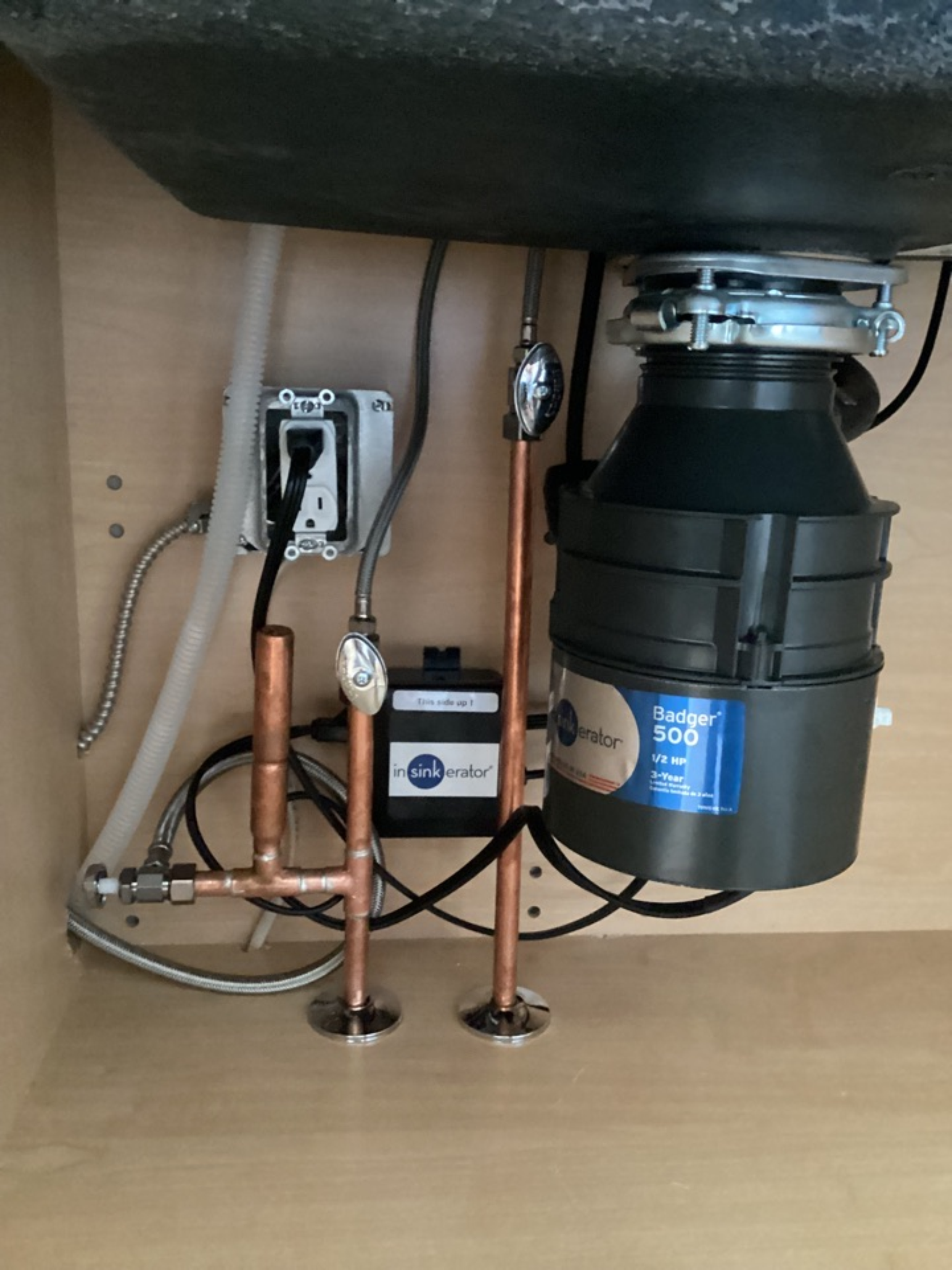The Surprising Truth About Garbage Disposals That Will Prevent Plumbing Problems
December 7, 2023

Question: When is a garbage disposal not a garbage disposal?
Answer: Every time you use it.
It doesn’t make sense at first but ask any plumber. If you want to protect your pipes and avoid costly repairs, a garbage disposal shouldn’t be used as a substitute for the trash can. They’re a great way to shred the small scraps you rinse from your plates, but many of those scraps are harmful to your plumbing, especially in large amounts.
Eggshells, coffee grounds, potato peels, trimmings from meat and vegetables, salad greens, pasta, rice and grease should all be scraped into the trash or compost instead of being put down the drain, even with a garbage disposal grinding it up (or trying to).
Not as effective as you think
You might be thinking: “But I’ve been putting that stuff down my garbage disposal for years without a problem!” We get it. But take it from us, we’ve seen the insides of many kitchen pipes and we know the problems that accumulate without you realizing it.
Garbage disposals might be powerful, but those whirring blades can offer a false sense of security. “Just because the disposal can handle it does not mean the drain system is able to,” says Jessie Cannizzaro, founder of Milestone Plumbing.
“Drains have lots of bends and twists and over time, buildup in these areas creates blockages that can cause nuisance backups.” And food that’s ground up is much more likely to get caught, especially if it’s stringy or peels from vegetables or fruits.
Still don’t believe us?
Let’s look at four common kitchen waste items and explain what can happen. To prevent kitchen sink blockages, steer these items away from your garbage disposal.
Coffee grounds: These stick to greasy substances and soap accumulation throughout the drainage system, creating dense, pasty drain blockages that are harder to remove.
Eggshells: When ground up and combined with other residue, they create a very hard and compacted material that resembles concrete.
Grease and fats: Don’t do it! Grease from hamburger, fats used in stovetop cooking, or any other fatty cooking products will create major issues in the drain system. Over time, traces of grease accumulate as layer upon layer of buildup creates a coagulated mess. This buildup is also very difficult to clear. Instead, pour that grease into a jar or can and let it harden before putting into the trash. And it’s best to wipe greasy pans, platters and dishes with a paper towel to remove greasy residue before rinsing them in the sink.
Starchy foods: Starchy foods like pasta, rice, oats, potatoes and beans will soak up water, expand, and collect in pipes. They can also accumulate on the disposal’s blades.
These substances can be so difficult to clear from a drain system that it often results in added costs — sometimes even requiring us to open walls and ceilings to replace the piping.
Proactive plumbing maintenance
At Milestone Plumbing, we believe in preventing plumbing problems before they disrupt your life, cost lots of money, and potentially even damage your home. “Proactive is always better than reactive when it comes to drain issues,” says Jessie.
Here are some proactive kitchen drain cleaning tips that will help, with or without a garbage disposal:
Run enough water. We often find that not enough water is run to thoroughly flush substances away. If you fill your sink to wash dishes by hand, the water released down the drain will do a nice job. If you don’t, try filling the sink and releasing water a few times a month.
Keep chemicals out of your pipes. These cleaners eat away at metal and can lead to major repairs. If your residence has PVC drains it’s still possible that your municipality’s system has metal materials — and those repairs are costly to taxpayers.
Use enzyme-based products. These can help break down buildup in the drain system and will not harm the pipes or the plumbing system. Enzyme-based products, when properly used, can help to slowly break down organic build-up in the system. To be effective, they must be used on a regular basis as a maintenance measure — not after your drain is clogged.
Signs of trouble
With proper proactive steps, you won’t experience the trouble signs of backed-up kitchen plumbing, such as slowly draining water, intermittent “glug-glug” noises, and even stopped-up sinks. But when you do spot these signs, it’s best to call a plumber right away.
The team at Milestone Plumbing will assess the problem, offer solutions, and help you prevent recurrences. Call us today at (414) 988‑4565 or email office@milestoneplumbinginc.com to get your services scheduled!